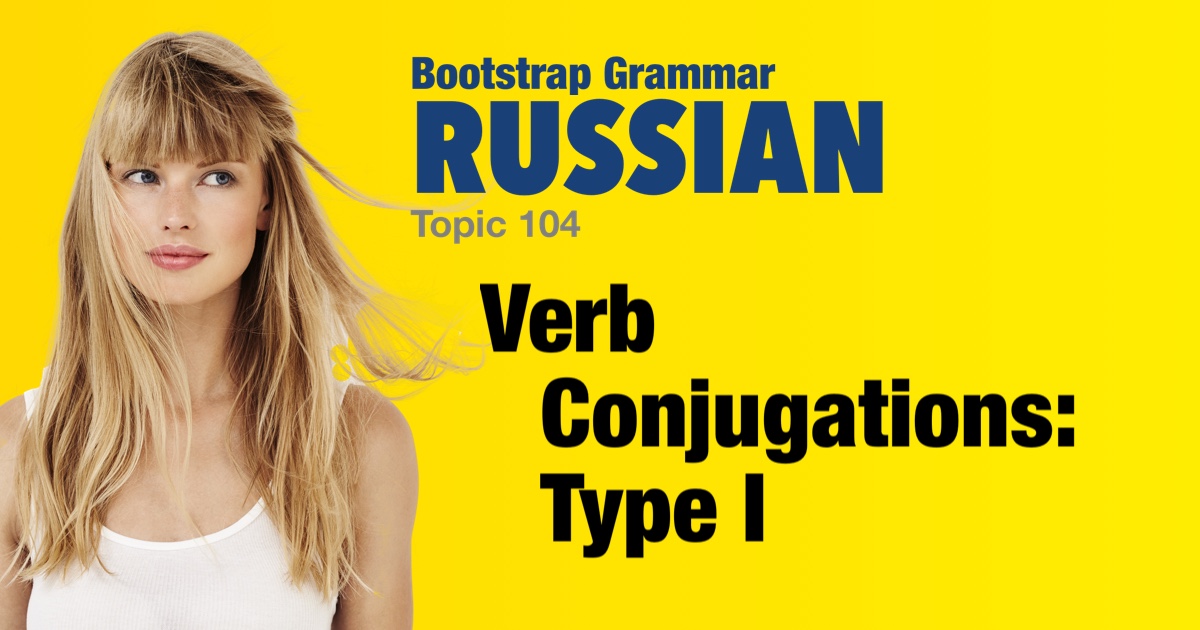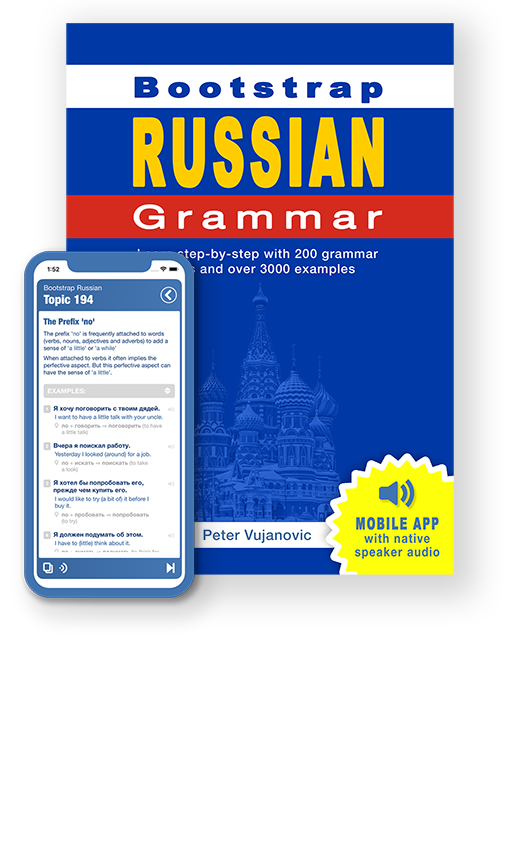Russian grammar - Verb Conjugations: Type I |
|||
|
|||
So far we have introduced about 20 verbs (most of which are imperfective). While a number of them were irregular, many, like most Russian verbs, conjugate in the present tense in one of two ways: • Type I: Verbs with infinitives end in -ать, -еть, -уть, -ять and -ти. These conjugate as follows: -- делать: я делаю, ты делаешь она/она/оно делает, мы делаем, вы делаете, они делают -- идти: я иду, ты идёшь, он идёт, мы идём, вы идёте, они идут Essentially the same for both делать and идти except the transposition of ю/у and е/ё. If the verb stem ends in a consonant we use у/ё. And ю/е for vowel endings. This makes pronunciation easier. There are many exceptions to the conjugation rules, but the rules will give you a good first stab when encountering a new Russian verb. The next topic covers Type II conjugations. |
| Examples: | |
|
Я тебя не слышу.
I cannot hear you (informal).
|
|
|
Он слышит странные звуки.
He is hearing strange noises.
|
|
|
Что ты слушаешь?
What are you (informal) listening to?
|
|
|
Он слушает музыку.
He is listening to music.
|
|
|
Ты берёшь макароны?
Are you (informal) taking (having) the pasta?
|
|
|
Он скоро начинает говорить.
He begins to speak soon.
|
|
|
История начинает быть странной.
The story is beginning to be strange.
|
|
|
Он продолжает рассказ.
He is continuing the story.
|
|
|
Моя дочь продолжает есть весь день.
My daughter is continuing to eat all day.
|
|
|
Почему ты держишь флаг?
Why are you (informal) holding a flag?
|
|
|
Он крепко держит её за руку.
He is holding her hand tightly.
|
|
|
Мы о поезде до Москвы спрашиваем.
We are asking about the train to Moscow.
|
|
|
Он спрашивает о вашей семье.
He is asking about your (formal) family.
|
|
|
Мы посылаем любовь из Парижа.
We are sending love from Paris.
|
|
|
Я не посылаю подарок в этом году.
I am not sending a gift this year.
|
|
|
На эту тему они молчат.
On that topic they are keeping silent.
|
|
|
Собаки сегодня молчат.
The dogs are silent tonight.
|
|
|
Он идёт на почту.
He is going to the post office.
|
|
|
Куда мы идём сегодня?
Where are we going today?
|
|
|
Вы поёте в душе?
Do you (formal) sing in the shower?
|
|
|
Птицы красиво поют.
The birds are singing beautifully.
|
|
|
Орел летит в облаках.
The eagle is flying in the clouds.
|
|
|
Самолеты летают очень быстро.
Planes fly very fast.
|
|
|
Он дует на свой очень горячий чай.
He is blowing on his very hot tea.
|
|
|
Я дую, как ветер.
I am blowing like the wind.
|
|
|
Они гуляют в Центральном парке.
They are taking a walk in Central Park.
|
|
|
Кто гуляет по реке сегодня днем?
Who is taking a walk along the river this afternoon?
|
|
 |
|



